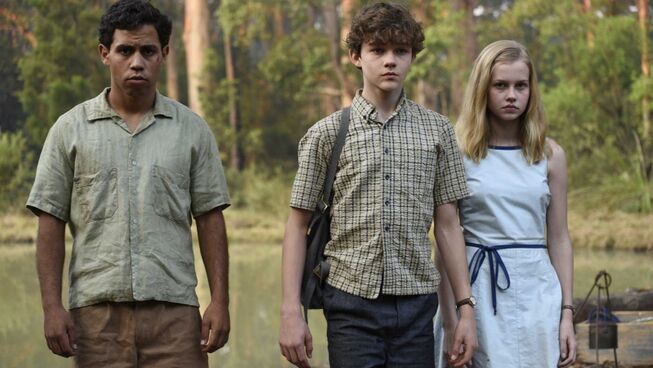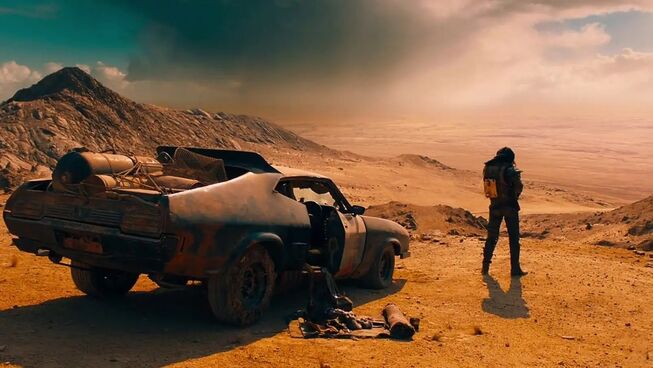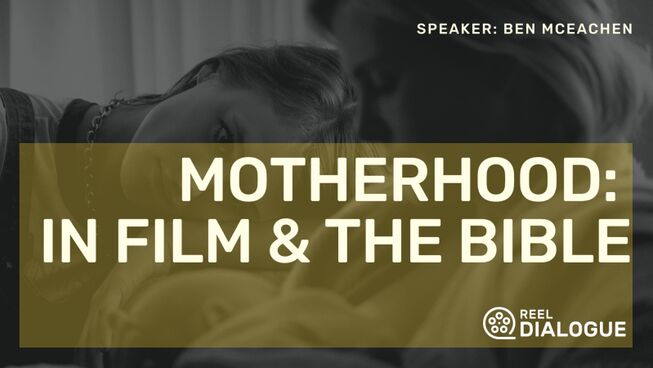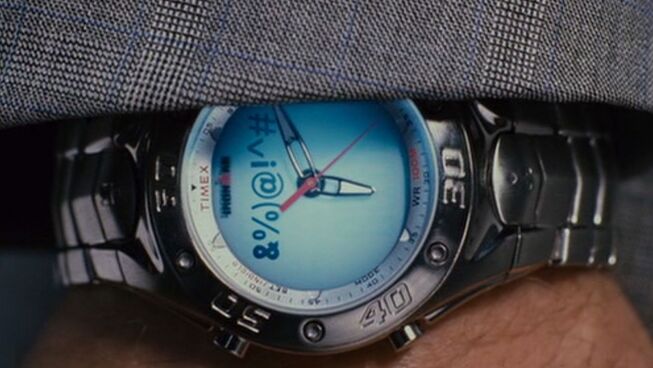
2.5 out of 5 stars
During the summer of 1965 in Corrigan, Western Australia, the biggest thing to happen centres on the preparations for the New Year fireworks. The only thing on Charlie Bucktin’s (Levi Miller) mind are reading books, discussing the world of comic heroes with his best mate, Jeffery Lu and recently he has been thinking about Eliza Wishart (Angourie Rice). All of these adolescent thoughts are dashed one night when Jasper Jones (Aaron L. McGrath) shows up at his window asking for help. Charlie knows the reputation of the mixed race outcast of their small community and is not sure what to do, but eventually goes out with the young man to the bush area on the outskirts of town. Their quiet journey is abruptly interrupted by the body of Laura Wishart who is badly brutalised and hanging in a eucalyptus tree. Jasper is desperate for Charlie to help him find the person behind the death of the young lady, because he had been romantically involved with Laura. As the local delinquent, he is sure that the authorities will accuse him of her ruthless killing, especially when they find out all of the details of their relationship. Charlie has to come to terms with this moral dilemma: should he turn Jasper into the police or should he help him to find the murderer?
Based on the 2009 novel by the Australian author, Craig Silvey, who puts forward his attempt to deliver the Australian equivalent of To Kill a Mockingbird. He addresses the real life issues of racism and abuse in the 1960’s as they are experienced through the eyes of a child. Director Rachel Perkins (Bran Nue Dae) manages to effectively unfold this murder mystery and then masterfully and gently interweaves it with the coming-of-age experience of the young protagonist. She allows the heart of the story to fall into the proverbial waters and has the ripples pour over each component which brings each clue to the surface in this small town whodunit. As each ripple shows more behind the mysterious disappearance of Laura, it shows that this is only one issue of many that needs to be addressed by the families of Corrigan. It could be said that all of this has been seen before on screen, but what Jasper Jones does offer is a unique glimpse into the Australian experience.
Similar to Stand By Me, this is a film that addresses adult issues with teen-agers as the central characters. What helps to deliver the message of the film is Perkins ability to cast some of Australia’s best acting talent. Hugo Weaving and Toni Collette fulfil their supporting roles with subtle inspiration, but their star power is overshadowed by the young cast. Levi Miller (Red Dog: True Blue) shows that he is maturing beyond his previous adolescent roles and does manage to hoist the film squarely on his shoulders. He is surrounded by a superb, but relatively unknown cast of young talent in Angourie Rice (The Nice Guys), Aaron L. McGrath and Kevin Long, as the endearing Jeffery Lu. Even with all of the mature themes and dark elements of this dramatic tale, they provide the needed innocence and poise to bring this story the youthful perspective that it needs. They manage to portray this generation that lived through the changes in race relations and abuse that were occurring around the world during this time in history.
The harsh realities of life are brought to bare on the screen with Jasper Jones. It can be categorised as a coming-of-age mystery, but Craig Silvey’s story is addressing much more that these teens experience as they transition into adulthood. Unlike most films within this genre, it shows a darker side of the realities of the human heart and that many times things do not work out for the better of all involved. It may not be a feel good film, but it does open the door to topics that transcend time and are worth candidly discussing with teen and adults.
REEL DIALOGUE: What are the bigger questions to consider from this film?
1. What does it mean to be human? (Genesis 1:27, 2:5-25)
2. Why are humans suspicious and violent? (Genesis 3, Matthew 15:19)
3. Does the Bible address racism? Yes (John 7:24, Romans 10:12, James 2:9)








